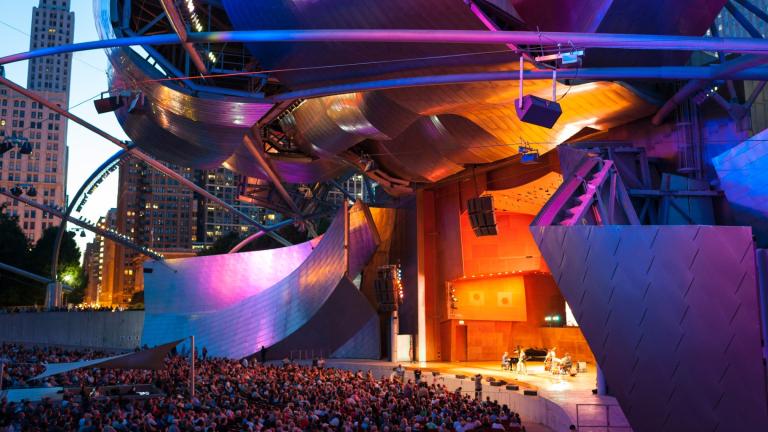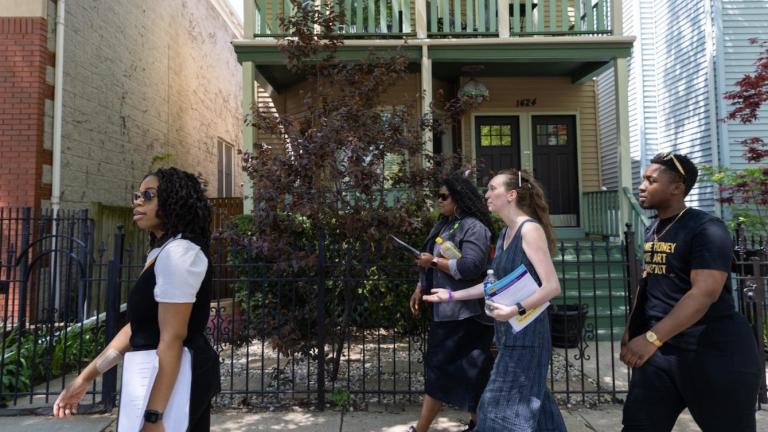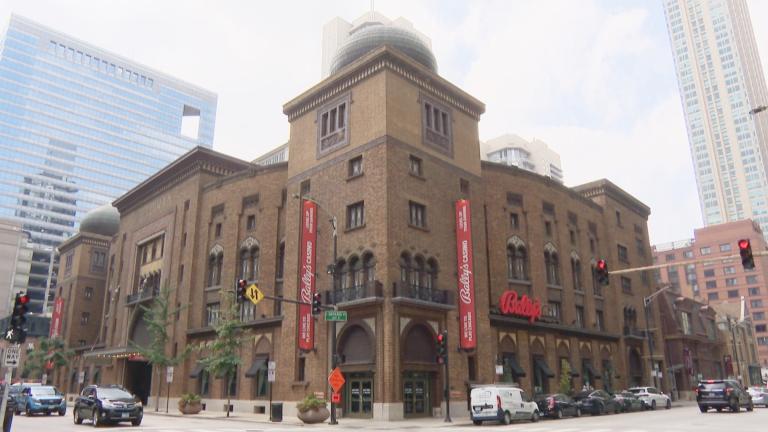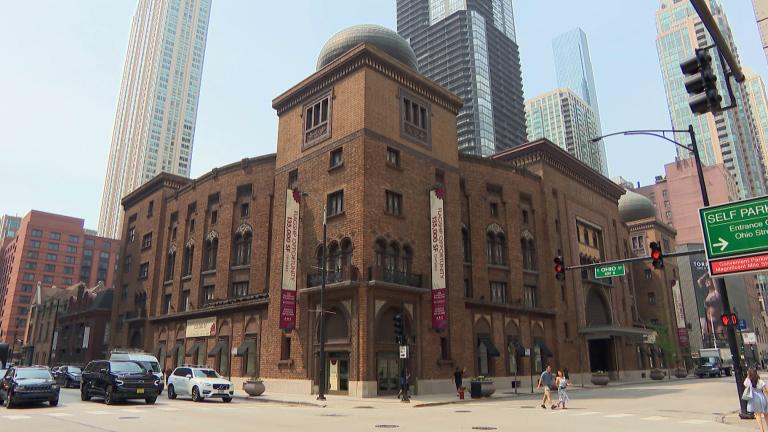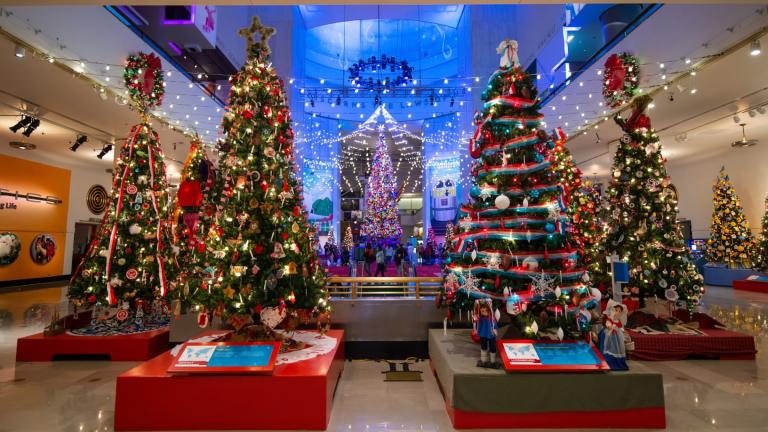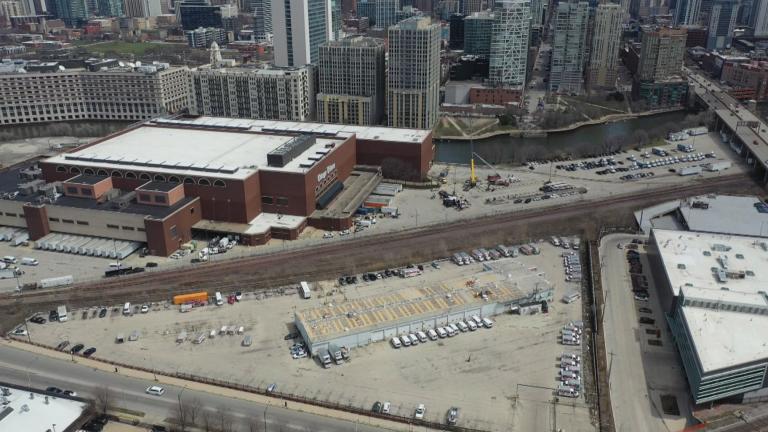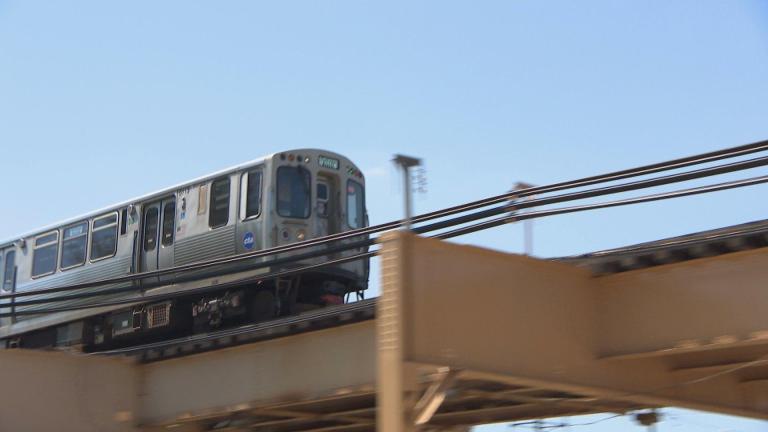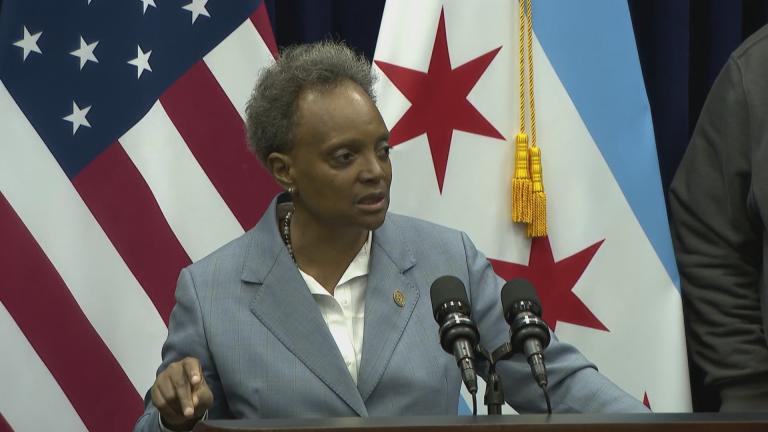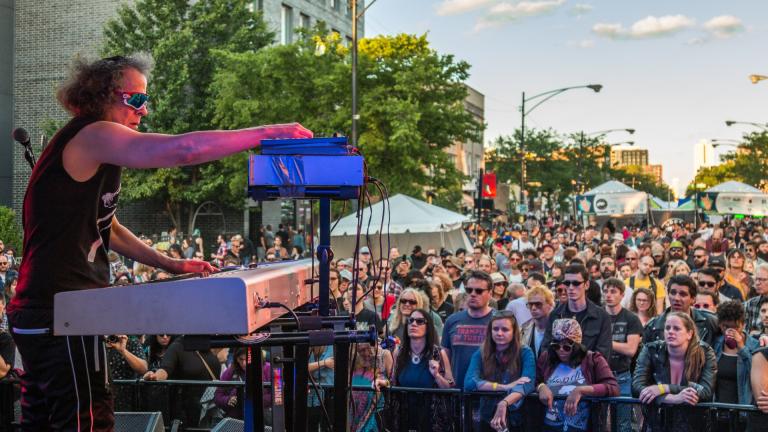Get ready for fun with this guide to neighborhood street fests, art shows, outdoor concerts and cultural celebrations of all sizes across Chicago and the suburbs.
Chicago Neighborhoods
The Folded Map action kit aims to help Chicagoans explore the effects of segregation in the city and how it continues to perpetuate racial inequities.
Chicagoans and tourists feeling lucky can play 800 slot games and 56 table games in the century-old Shriner’s temple at 600 N. Wabash Ave., with its distinctive domed ceilings and stained-glass windows.
Mayor Brandon Johnson said a $3.6 billion plan to build 5.6 miles of new train tracks, as well as four stations, would “right a historic wrong” and provide a “critical connection that has been missing for half a century.”
It is not clear exactly when Bally’s will be able to open a temporary casino in the century-old Shriner’s temple at 600 N. Wabash Ave., with its distinctive domed ceilings and stained-glass windows. A Chicago landmark since 2001, the temple was most recently home to a Bloomingdale’s furniture store.
Even if the federal grant is approved by Congress, Chicago would need an additional $2.4 billion to cover the total cost of the project, much of which is city officials hope will come from the federal government in future years.
There's still plenty of holiday merriment to be made through the New Year.
The fund will award grants in amounts ranging from $50,000 to $250,000 for projects, including energy efficiency upgrades, green infrastructure or the purchase of electric vehicles.
The move will generate $959 million for the project by funneling a portion of the increase in property tax revenues for the next 35 years from the 42nd, 3rd, 4th, 11th and 25th wards — even though the extension of the train line would be miles away from any of those wards.
Bally’s Chicago casino is set to have 3,400 slots and 173 table games in addition to an exhibition hall, 500-room hotel, a 3,000-seat theater and 11 restaurants. The development will include a 2,100-square-foot park and walking path along the river and a three-level underground parking garage, according to the plans released by city officials.
The $1.74 billion proposal still needs the approval of the Illinois Gaming Board, which must license Bally’s to operate the Chicago casino set to be built along the Chicago River near Chicago Avenue and Halsted Street.
The city must match an expected federal grant of $2.16 billion before the first track can be laid — and the City Council is set to give the project signal clearance Wednesday.
The city must match an expected federal grant of $2.16 billion before the first track can be laid — but it is not clear whether the City Council will give the project signal clearance.
Between indoor, outdoor and drive-thru options for light displays, it's safe to say this holiday season will be bright. We've also rounded up a baker's dozen of holiday markets.
Lightfoot formally introduced a proposal on Wednesday to the Chicago City Council to create a new tax-increment financing district along the southern branch of the CTA Red Line to fund the extension of the train line first envisioned by former Mayor Richard J. Daley in the 1950s.
Get ready for fun with this guide to neighborhood street fests, art shows, outdoor concerts and cultural celebrations of all sizes across Chicago and the suburbs.

